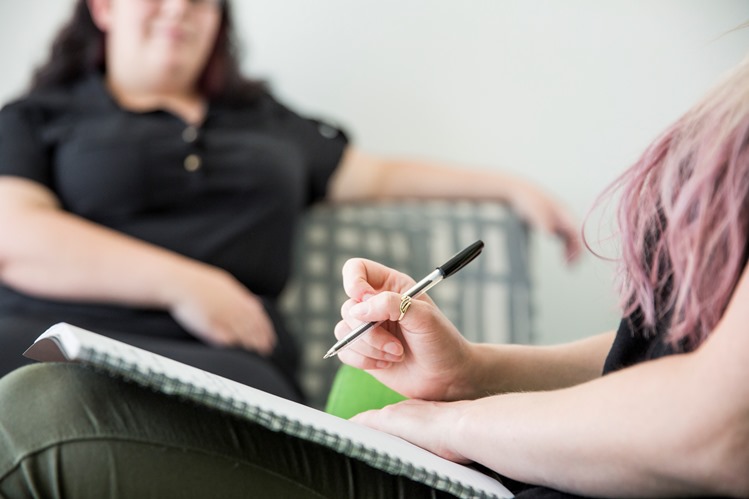Download our fact sheet on getting help from a GP
(PDF 675kb)
What is a general practitioner?
GPs are doctors who are trained to help you with any type of physical or mental health issue. You can visit a GP if you’re concerned about any health issues like:
- sexual health and contraception
- alcohol and other drug use
- relationship problems
- your mood or worrying thoughts
- your sleep, appetite or ability to concentrate
- other physical or mental health concerns
How do I find a doctor?
A way of finding a GP is to ask a friend, family member or someone you know who they could recommend. You could also drop in to a medical centre in your local area and ask about what services they can offer you. Schools, TAFEs and universities often know about local GPs and sometimes have their own medical services.
A quick search on healthdirect can help you find a GP nearby.
If you have a family GP, they can be a good place to start if you need some help and feel comfortable talking to them. Even if they know your family, a GP is still required to keep your information private. If you’re worried about this you should talk to them.
How much will a GP appointment cost?
Many GPs provide free (‘bulk billed’) appointments to young people and people with Health Care Cards. This is usually the case with headspace GPs. Sometimes your GP might charge a ‘gap’ fee, which is an extra cost you may have to pay. If you're worried about this, check the costs when you book your appointment.
To be bulk billed, you'll need to have a Medicare card or know your Medicare number (if you don't know this, ask reception when you book your appointment, and they can help).
If you are listed on a joint Medicare card, you can use that card. This appointment may be listed on the Medicare record for that card – which means your parent(s)/guardian may be able to see that you've had an appointment. Although the appointment will be visible for the card owner, what you speak about is still kept private.
If you’re Australian and over 15 years of age you can have your own Medicare card. Having your own card means that you can keep your visits to the doctor confidential. For more information or to apply for your own card see Services Australia.
How do I book a doctor’s appointment?
- Many GPs have online bookings. A quick online search for a GP on healthdirect will help you find one. You could also phone or drop into a medical centre to see a GP.
- You will need to provide your contact information, but you don’t need to explain what the problem is if you don’t want to.
- If you have more than two things to discuss, or want a mental health care plan, book a longer appointment.
- If you feel uncomfortable going by yourself, bring someone you trust – your doctor won’t mind at all.
You might find that some GPs don’t have appointment times for new patients. Let them know if it’s an urgent problem and they may be able to provide other options.
Ask our experts
What does an appointment look like?
Our headspace clinicians have some advice on what to expect when you visit a GP:
- Standard GP appointments usually take between 10-15 minutes. A longer appointment will take 20-25 minutes.
- First appointments with GPs at headspace centres are usually longer than a standard appointment. You might be seen by another health worker, too – it just really depends on what you need to speak about.
- The GP will ask a range of questions about your health and may want to do a physical check-up, like blood pressure, heart rate and temperature, or examine other parts of your body relevant to your problem.
- A GP can’t do any sort of examination without explaining why it’s necessary, what will happen and getting your permission.
-
The GP will then discuss the concern with you and talk about what you can do next. Remember to ask your GP questions about your health problem so you know exactly what’s going on. Try to be open and honest about your concerns and situation so that you can make a plan together.
-
Don't be embarrassed to ask questions if you don't understand something. Your GP is there to help you and has seen all sorts of issues. If you think you'll forget or feel too awkward, write down your concerns before the appointment and give this to your GP.
What are my rights to privacy?
If you’re not feeling comfortable and safe with your GP, it’s perfectly OK for you change to another doctor and ask them to transfer your medical records.
All GPs have to keep, by law, information about their patients private. This means they cannot discuss your visit with anyone else, but there are a few exceptions. If a GP thinks you’re likely to harm yourself or someone else, they have a duty of care to make sure you stay safe, so they may need to tell other people.
The only other time a doctor will release your information is if ordered to do so by a court, but this is rare.
If you want to know more about your rights to privacy and confidentiality, ask your GP to talk it through with you at any stage of your appointment.
For more information, to find your nearest headspace centre or for online and telephone support, visit eheadspace
The headspace Clinical Reference Group oversee and approve clinical resources made available on this website.
25 February 2022
Get professional support
If you feel you need help there are a range of ways we can support you.
